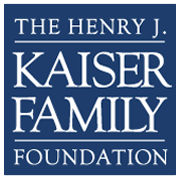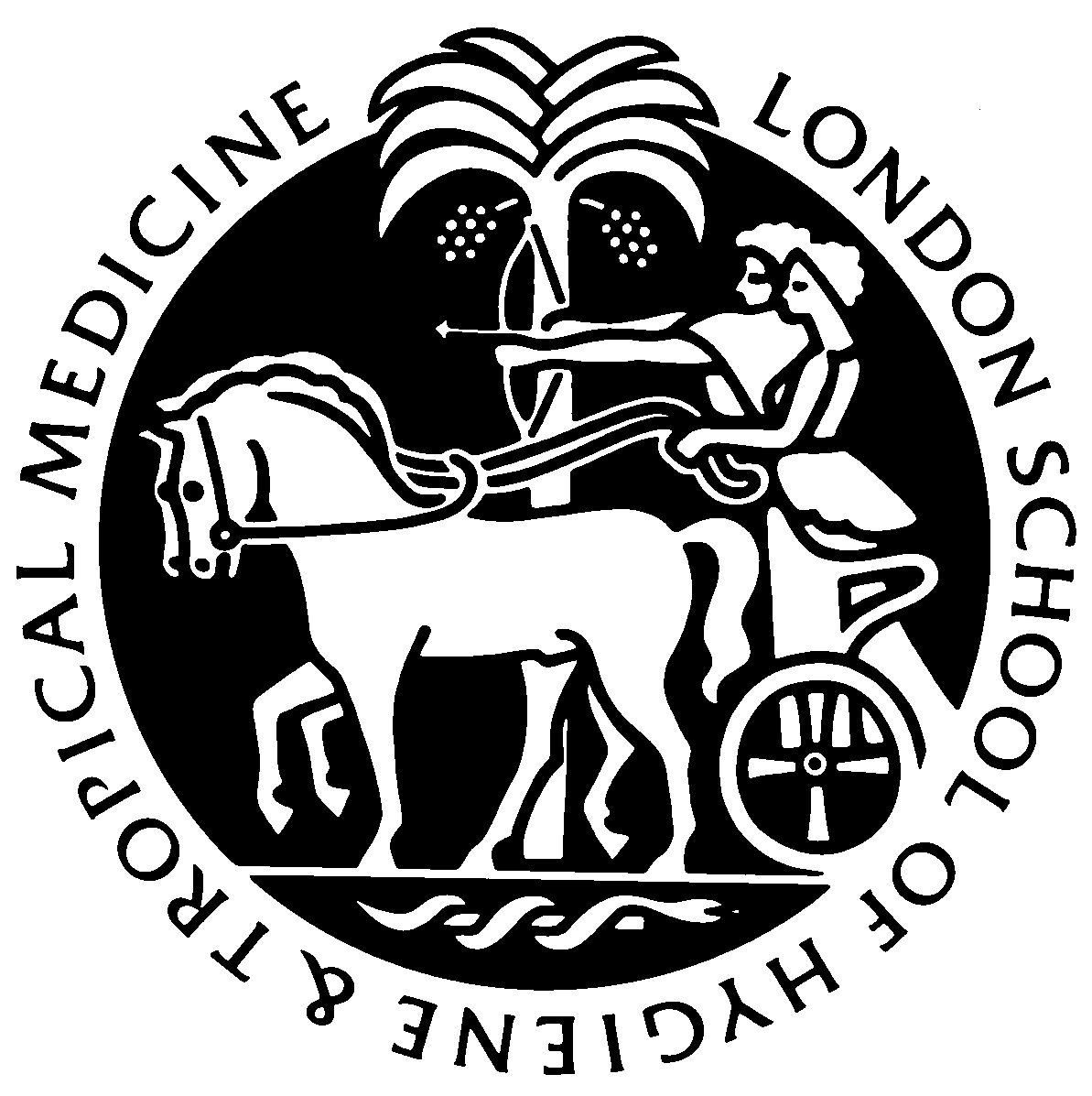预约演示
更新于:2025-05-07

The Henry J. Kaiser Family Foundation
更新于:2025-05-07
概览
关联
2
项与 The Henry J. Kaiser Family Foundation 相关的临床试验NCT00308568
Randomized Controlled Trial of a Mailed Brochure to Increase Adherence to Referrals for Screening Colonoscopy
The purpose of this study is to evaluate the effect of a mailed educational brochure on adherence to referral for screening colonoscopy. The comparison (or control) group receives no mailer, which is usual care.
开始日期2006-02-01 |
申办/合作机构 |
NCT00242957
The Intervention With Microfinance for AIDS and Gender Equity (IMAGE) Study
The IMAGE Study is a cluster randomised trial of a structural intervention for the prevention of HIV and gender based violence being conducted in South Africa.
开始日期2001-06-01 |
申办/合作机构 |
100 项与 The Henry J. Kaiser Family Foundation 相关的临床结果
登录后查看更多信息
0 项与 The Henry J. Kaiser Family Foundation 相关的专利(医药)
登录后查看更多信息
164
项与 The Henry J. Kaiser Family Foundation 相关的文献(医药)2023-04-01·Health Affairs
Access Problems And Cost Concerns Of Younger Medicare Beneficiaries Exceeded Those Of Older Beneficiaries In 2019
Article
作者: Koma, J. Wyatt ; Fuglesten Biniek, Jean ; Cubanski, Juliette ; Neuman, Tricia
2022-06-01·Journal of Women's Health
Screening and Intervention for Psychosocial Needs by U.S. Obstetrician-Gynecologists
Article
作者: Weigel, Gabriela ; Salganicoff, Alina ; Frederiksen, Brittni ; Ranji, Usha
2022-03-01·The Milbank Quarterly2区 · 医学
A Playbook for Implementing Medicaid Expansion: Louisiana's Experience
2区 · 医学
Article
作者: BOLES, WILL ; GEE, REBEKAH E. ; KENNEDY, RUTH ; ROWLAND, DIANE ; SIEWERT, EMMA ; LYONS, BARBARA
13
项与 The Henry J. Kaiser Family Foundation 相关的新闻(医药)2025-04-28
·药时空
去年11月14日,特朗普提名富有争议的小罗伯特·肯尼迪(Robert F. Kennedy Jr.)为美国卫生与公众服务部部长,舆论普遍对这一任命感到担忧。这位著名的“反疫苗活动家”一直坚称疫苗会导致自闭症,他还发表了一篇题为《致命免疫力》的文章,指控美国政府隐瞒疫苗真相。尽管这篇文章内容完全不符合事实,但它流传甚广,导致许多家长对“反疫苗虚假信息”深信不疑。新冠疫情期间,他大肆宣传公共卫生阴谋论。肯尼迪家族为此反对他,其妻子对他进行公开谴责。自2000年美国正式宣布消除麻疹以来,如今却目睹了病例数的显著回升。这次疫情的背后,不仅有麻疹病毒的传播,更有另一场“看不见的流行病”在发酵——关于麻疹疫苗(MMR疫苗)的虚假信息正在美国社会中迅速扩散。根据一项最新调查,超过四分之三的美国人表示,他们听到过关于麻疹或其疫苗的不实说法,而令人忧虑的是,不少人对这些错误信息的真假感到困惑。这种信息混乱正在悄无声息地削弱美国人对疫苗的信任,并威胁着本可以通过简单疫苗接种预防的疾病防线。这场十年来最严重的麻疹疫情已导致两名儿童死亡,并蔓延至 27 个州,且没有减缓的迹象,但人们对麻疹疫苗的安全性和该疾病的威胁的看法却出现了严重分歧,而美国最高卫生官员的反疫苗观点更是加剧了这种分歧。根据 KFF 的一项调查,大约三分之二的共和党倾向的父母不知道今年麻疹病例有所增加,而大约三分之二的民主党倾向的父母知道这一点。根据对 1,380 名美国成年人的调查,共和党人对疫苗的怀疑程度要高得多,认为麻疹疫苗比疾病本身更糟糕的可能性是民主党人(十分之一)的两倍(五分之一)。这项于 4 月 8 日至 15 日通过网络和电话进行的调查显示,接受调查的共和党人中约有 35% 表示,将麻疹、腮腺炎和风疹疫苗与自闭症联系起来,而只有 10% 的民主党人持这种观点。广泛传播的虚假说法有哪些?KFF调查列举了几种流传甚广但没有科学依据的谣言,包括:l 麻疹疫苗会导致自闭症l 儿童自然感染麻疹比接种疫苗更安全l 维生素A可以完全预防麻疹,不需要疫苗l 麻疹疫苗不经过严格安全检测信息混乱源于“权威人士”的矛盾言论这种混乱的传播环境,与部分公众人物在疫苗问题上的模糊或矛盾表态有关。Immunize.org首席执行官Kelly Moore指出,当来自权威人士的信息自相矛盾时,公众自然会产生困惑,这种不确定感进一步削弱了疫苗接种率。尽管大量科学研究已明确指出疫苗与自闭症之间不存在关联,小肯尼迪仍下令HHS开展针对环境因素与自闭症相关性的调查,并承诺将在今年9月前给出部分解释。这种做法在科学界引发了广泛担忧,因为它可能进一步助长对疫苗的误解政治分歧加剧了科学传播的困难在一些地区,尤其是南部州,政治立场正在成为影响疫苗观念的重要因素。休斯顿免疫合作组织首席战略官Rekha Lakshmanan指出,近年来在德州、路易斯安那州、阿肯色州和俄克拉荷马州的州议会中,即便是拥有医学背景的议员,也未必积极支持公共卫生措施。她将在世界疫苗大会上发表相关研究,指出当反疫苗人士受邀在立法听证会上发言时,虚假信息得以通过官方渠道扩散,极大增加了澄清科学事实的难度。不要等到灾难发生才后悔回顾2014–2015年加州迪士尼乐园爆发麻疹疫情的经历,儿科医生Eric Ball有着深刻的体会。他所在的橙县社区在经历疫情冲击和州政府收紧疫苗豁免政策后,才恢复了对疫苗接种的重视。“麻疹疫苗最大的问题是它太有效了,”Ball“大家都打了疫苗,就没人得病,久而久之,大家就忘了麻疹的危险。说,”然而,当麻疹再次爆发,他亲眼见到孩子们因感染而重症甚至死亡后,诊所果断停止接收未接种疫苗的患者。他回忆,当年有婴儿在候诊室中被暴露感染,病毒就在医疗机构内部传播,“那种感觉,太糟糕了。”信息防疫,刻不容缓麻疹的回归不仅是对公共卫生系统的挑战,更暴露了信息时代的一大危机:科学事实在“噪音”中逐渐被淹没。打赢麻疹的战役,绝不仅靠疫苗本身,更需要一个以科学为基础、以事实为引导的健康信息环境。原文来源:https://medicalxpress.com/news/2025-04-measles-misinformation-americans-survey.html识别微信二维码,可添加药时空小编请注明:姓名+研究方向!
疫苗高管变更
2024-09-28
·药闻康策
☝ 点击上方 一键预约 ☝
最新最热的医药健康新闻政策
礼来Zepbound(替尔泊肽)在2023年底获批上市后,诺和诺德和礼来在GLP-1领域的龙争虎斗延伸到价格战。
诺和诺德的司美格鲁肽在针对2型糖尿病和肥胖症获批上市都领先礼来的替尔泊肽一步,在定价方面给礼来提供了参照标准,从这个角度来看,价格战可以说是礼来“挑起”的。
礼来为替尔泊肽设定的标签价格为1060美元,明显低于诺和诺德的司美格鲁肽(1350美元,低21.5%)。虽然药物的标价通常高于患者实际支付的价格,但替尔泊肽低标价却明心见义地表明了礼来在价格上挑战司美格鲁肽的决心。
两大龙头的价格战很有可能促进未来的GLP-1减肥药降价。这对于许多囊中羞涩的肥胖症患者来说意义重大。
美国的药物价格体系非常复杂,患者很少支付药品的全部标价。药品经销商与制药公司协商降低价格,药店与经销商协商进一步压低价格。之后就是健康保险发挥作用了。
诺和诺德称,在1.1 亿美国肥胖症患者中,大概有5000万人拥有肥胖者有减肥药保险。然而,健康政策研究非营利组织 KFF称,联邦保险Meidcare并不承保GLP-1减肥药,州政府的Medicaid承担这些药物的,全美只有16个州。
美国肥胖医学委员会表示,低收入女性肥胖者比例很高,而这些人通常不太可能获得良好的保险覆盖。
具体来看,FDA批准的三种GLP-1多肽减肥药利拉鲁肽(诺和诺德),司美格鲁肽(诺和诺德)和替尔泊肽(礼来),是否能获得保险覆盖,对患者来说有不小的差别。
表1. GLP-1多肽药物及其价格表
利拉鲁肽是是全球第一个被美国FDA(2014年)和欧洲EMA(2015年)批准用于减重的GLP-1RA。诺和诺德称,截至 2021 年 8 月,在商业保险覆盖下,约 80%患者每月的处方药价格低于30美元。利拉鲁肽的储蓄计划将于 12 月 31 日后停止,目前尚不清楚患者在 2024 年以后将为这款药物支付多少费用。
拥有司美格鲁肽保险的人中,大约80%的患者每月在司美格鲁肽上的花费为 25 美元或更少。持有不承保该药物的商业保险计划的患者如果支付现金,可以获得一张储蓄卡,可以将总标价减少 500 美元。该卡最多可续配 12 次 28 天处方药。换句话说,如果没有商业保险,患者一个月的用量大约需要支付 850 美元。只有拥有商业或私人保险的人才有资格参加司美格鲁肽的储蓄计划。
对于参加替尔泊肽储蓄卡计划的那些拥有商业保险的投保人来说,一个月或三个月的替尔泊肽处方费用可能低至25 美元。
参加储蓄计划的患者如果拥有的商业保险不承保替尔泊肽,则可以最低550 美元的价格购买一个月的替尔泊肽处方药剂量。据礼来称,替尔泊肽从去年12 月 15 日开始被添加到 Cigna Healthcare 的商业处方中。目前尚不清楚那些没有商业保险的人将花多少钱购买替尔泊肽,而且 替尔泊肽不允许那些已经被Medicare或Medicaid覆盖的患者参加其替尔泊肽储蓄卡计划。
-01-
竞争的尽头不一定是“价格战”
在大多数情况下,竞争会导致降价。但行业内也有竞争促进的药物价格上涨的先例。比如,胰岛素。
在美国政府做出胰岛素价格封顶的要求之前,这个1型糖尿病人的救命药,价格在几大生产巨头之前是几乎是齐头并进地不断上扬。
在诺和诺德、赛诺菲和礼来三大巨头的竞争之下,他们的胰岛素产品价格几乎如影随同一样地同步上涨,这种现象被称为“影子定价(Shadow Pricing)”。
影子定价指的是公司通过观察竞争对手的价格行为来调整自己的定价策略,以维持相对固定的价格水平。这种定价策略是为了避免激烈的价格竞争,而更侧重于跟随竞争对手的价格变化,以维持相对市场份额和盈利水平。
尽管存在激烈的市场竞争,但胰岛素的价格在过去十年中持续攀升,标价通常一年内上涨了一位或者两位的百分数。根据 Truven Health Analytics 的数据,赛诺菲的长效胰岛素 Lantus 的 10 ml瓶装于 2001 年首次进入美国市场,当时每瓶售价仅为 34.81 美元,而这个价格到了2014年已经飙升到了248.51美元。
就在Lantus价格上扬600%的这个阶段,诺和诺德的竞争产品出现了。2006年,诺和诺德的新药Levemir以66.96美元的价格上市(接近赛诺菲Lantus当时的标价)。而Levemir的出现并没有打压对手的产品价格,相反,Levemir 的售价也随行就市地攀升到了269 美元(图1)。
换句话说,竞争没有对压低价格产生任何影响。相反,两家公司“比学赶超帮”地在涨价方面开始了惺惺相惜的“同而不和”。
图1. 赛诺菲的胰岛素Lantus与诺和诺德竞争产品Levemir的价格走势图。(图片来源:Truven Health Analytics)
再让我们看看短效胰岛素(糖尿病患者进食时服用的胰岛素类型,或胰岛素泵中使用的胰岛素),礼来的Humalog和诺和诺德的NovoLog不同产品之间价格涨势图竟然出奇的心有灵犀,甚至于看不出这是两条走势线(图2)。
图2. 短效胰岛素Humalog与NovoLog价格走势图。(图片来源:Truven Health Analytics)
礼来的 Humalog 1996 年标价为 20.82 美元,现在售价为 255.40 美元,20 年来上涨了 1124%。诺和诺德的 Novolog 于 2001 年 8 月首次上市,售价为 39.75 美元,到了2016 年 7 月,每瓶标价为 255.40 美元,与 Humalog 别无二致。
价格在竞争的环境下仍然能够不断攀升,尽管这种现象听上去不合逻辑,但在医药行业的大环境中似乎就可以找到注解,毕竟胰岛素的重要性不言而喻,而它的制造有掌握在几家巨头手中,只要他们之间达成一致,价格就可以按照Shadow Pricing的模式继续“朱门酒肉臭”下去。胰岛素并不是这方面的孤例,EpiPen同样是这种套路。
2009 年,Mylan从默克 (Merck KgAA) 手中收购了 EpiPen(肾上腺素注射笔,主要用于治疗过敏反应)。当时一包两支的 EpiPen 售价为 124 美元。到 了2012 年底,EpiPen的价格已升至 241 美元。2013年1月,赛诺菲推出了EpiPen的竞争对手Auvi-Q,同样售价241美元。同年 7 月(制药公司通常选择1月或者7月对产品进行涨价),Mylan 将 EpiPen 的价格提高至 265 美元。两周后,赛诺菲将 Auvi-Q 标价提高至 277 美元,11 月 Mylan 将 EpiPen 上调至 304 美元,12 月赛诺菲将 Auvi-Q 上调至 334 美元。当赛诺菲因 2015 年因剂量问题而撤回 Auvi-Q 时,其标价已经升到了509 美元,EpiPen 的标价则为 461 美元(图3)。
图3. EpiPen和Auvi-Q的价格涨势图。(图片来源:Forbes)
涨了又涨的胰岛素价格,最终在天怒人怨下凭借美国政府的立法才在2023年1月服从了Medicare Part D 每月35美元的封顶价格。
胰岛素和肾上腺素注射笔的案例说明,尽管在某个市场存在多个供应商,但这并不一定意味着产生了真正的竞争。在某些情况下,即使有多家公司提供相似的产品,市场仍可能受到垄断或寡头垄断的影响,从而导致价格同步上涨的现象。
· 价格领导者模式:在一些情况下,市场上的一家公司可能会设定价格,并且其他公司选择跟随这个价格。这种情况下,虽然存在多个公司,但它们的定价策略却相对一致。
· 行业共谋和行业公式:制药行业可能存在一种共识文化,竞争对手有时可能达成共识,共同提高价格,提高整个行业的盈利水平。这被称为行业共谋,这种协作行为可能违反反垄断法规,但有时它可能难以被监管机构察觉或证实。
· 产品特性和差异:虽然存在多个公司,但它们提供的产品可能在某些方面存在差异,使得患者难以在不同产品之间进行直接替代。这减少了价格对产品的敏感性,使得企业更容易调整价格而不失去市场份额。
· 同质化的产品:与上述的产品特性和差异的原因相反,如果不同公司提供的产品在性能、效果等方面差异不大,患者可能很难在它们之间找到明显的选择。这种同质化可能导致价格竞争的减弱,使得公司更容易进行协调定价。
· 需求不弹性:出于上述产品特性的差异,如果患者对于不同品牌的产品的需求不太弹性,即使价格上涨,他们也可能无法轻松转向其他选择。这可能减弱了患者对价格上涨的反应,使得企业更容易调整价格。
· 缺乏新竞争者进入市场:如果市场上没有新的竞争者进入,现有的公司可能没有足够的动力去降低价格以吸引患者。这可能与市场进入的壁垒、法规要求或其他因素有关。
-02-
GLP-1 减肥药的价格走向?
与其他 GLP-1 药物比,替尔泊肽 相对较低的价格可能会对GLP-1药物未来的发展趋势产生影响。价格差异可能会鼓励市场竞争,有可能增加这些药物的可及性。但替尔泊肽的价格影响具体表现在何处,还将受到很多其他因素的影响,包括消费者需求、保险范围以及相关药物的涌现。
尽管目前市场上存在着司美格鲁肽和替尔泊肽的竞争,但也不排除价格不降反升可能。诺和诺德和礼来已经通过提供优惠券和代金券的方式来降价。但这种促销手段应该存在时间限制,当促销过去,保险公司不会愿意去填补价格上涨的差异。从制造商的角度来看,礼来和诺和诺德都做出了巨额投资兴建生产机构,这也许显示出了他们并没有在短期对药物价格下调的意愿,否则付出的几十亿美元投资将不具备优良的成本效益。
GLP-1减肥药2024年的价格黜陟,将成为围绕这类药物的耐受性、停药反弹、新适应症拓展、供应链、保险覆盖等众多话题之中的又一个。
(来源: 深蓝观)
药闻康策
新媒体矩阵微信公众号
点击下方 一键关注
【免责声明】
1.“药闻康策”部分文章信息来源于网络转载是出于传递更多信息之目的,并不意味着赞同其观点或证实其内容的真实性。如对内容有疑议,请及时与我司联系。2.“药闻康策”致力于提供合理、准确、完整的资讯信息,但不保证信息的合理性、准确性和完整性,且不对因信息的不合理、不准确或遗漏导致的任何损失或损害承担责任。3.“药闻康策”所有信息仅供参考,不做任何商业交易或医疗服务的根据,如自行使用“药闻康策”内容发生偏差,我司不承担任何责任,包括但不限于法律责任,赔偿责任。
欢迎转发分享、点赞、点在看
上市批准临床研究
2024-08-27
Dive Brief:An expensive weight loss drug could become one of Medicares costliest medications, even if the majority of patients are ineligible for coverage, according to a study published Monday in the Annals of Internal Medicine.The analysis found 3.6 million people are likely to be eligible for treatment with semaglutide, a GLP-1 drug thats approved as Wegovy to treat obesity and reduce heart risk. More liberal definitions of eligibility could increase that number to 15.2 million people.If all newly eligible patients received semaglutide, spending in Medicares Part D prescription drug benefit could increase by $34 billion to $145 billion each year, according to the study. Even if the government narrowly defined eligibility, federal spending on the medicine could still exceed $10 billion annually.Dive Insight:New GLP-1 drugs have shown great promise at treating obesity, a condition that affects a large proportion of American adults and contributes to a range of other health conditions. More recent testing has shown semaglutide, and a rival drug from Eli Lilly, hold notably other benefits.In March, U.S. regulators approved Wegovy for expanded use reducing heart attack risk in people with cardiovascular disease and who are obese or overweight.But Wegovy and drugs like it are costly and, at least for weight loss, people need to take them chronically potentially putting strain on insurers should significant numbers of people receive treatment.Employers, who provide health insurance coverage for the majority of Americans younger than 65 years, have already been sounding alarms over the drugs contribution to rising healthcare expenses.A report published last week by the Business Group on Health estimates large employers are preparing for a 7.8% spike in healthcare costs next year, largely due to increased spending on pharmaceuticals like GLP-1s.Meanwhile, Medicare spending on GLP-1 drugs has already accelerated. Gross spending on the medications rose from $57 million in 2018 to $5.7 billion in 2022, even though the program only covered three GLP-1 medications for diabetes at that time, according to an analysis by health policy research firm KFF.But now more Medicare beneficiaries may be able to access semaglutide. This spring, the Centers for Medicare and Medicaid Services said it would cover the costs of Novo Nordisks Wegovy for some people with a history of heart disease. (Medicare is currently prohibited for covering medicines only for obesity.)The new research aims to estimate how much covering semaglutide could cost Medicare, depending on how the program defines patients with established cardiovascular disease.While more than 14% of Medicare-eligible adults would be highly likely to be covered for semaglutide, more liberal definitions of established cardiovascular disease could increase that proportion up to nearly 61%, according to the study.Still, access to the drug could be impacted by other factors, like out-of-pocket costs, drug shortages, utilization management strategies and formulary placement, the researchers wrote. For example, if the medication is put on a specialty tier, Medicare Part D drug plans could charge 25% to 33% of the medications retail cost.But even with low usage rates, the medication could potentially become one of the largest drivers of Medicare spending without near-term budget controls, according to the study.Only 1 in 7 Medicare beneficiaries with elevated BMI are likely eligible for semaglutide if established cardiovascular disease is narrowly defined, researchers found. Even then, costs to Medicare could still exceed $10 billion each year.In this conservative coverage scenario, that means most beneficiaries with elevated BMI and cardiovascular risk would remain ineligible for semaglutide, yet the medication could still potentially become one of the costliest drugs to Medicare, lead author Alexander Chaitoff said in a statement. '
上市批准AHA会议
100 项与 The Henry J. Kaiser Family Foundation 相关的药物交易
登录后查看更多信息
100 项与 The Henry J. Kaiser Family Foundation 相关的转化医学
登录后查看更多信息
组织架构
使用我们的机构树数据加速您的研究。
登录
或

管线布局
2026年02月08日管线快照
无数据报导
登录后保持更新
药物交易
使用我们的药物交易数据加速您的研究。
登录
或

转化医学
使用我们的转化医学数据加速您的研究。
登录
或

营收
使用 Synapse 探索超过 36 万个组织的财务状况。
登录
或

科研基金(NIH)
访问超过 200 万项资助和基金信息,以提升您的研究之旅。
登录
或

投资
深入了解从初创企业到成熟企业的最新公司投资动态。
登录
或

融资
发掘融资趋势以验证和推进您的投资机会。
登录
或

生物医药百科问答
全新生物医药AI Agent 覆盖科研全链路,让突破性发现快人一步
立即开始免费试用!
智慧芽新药情报库是智慧芽专为生命科学人士构建的基于AI的创新药情报平台,助您全方位提升您的研发与决策效率。
立即开始数据试用!
智慧芽新药库数据也通过智慧芽数据服务平台,以API或者数据包形式对外开放,助您更加充分利用智慧芽新药情报信息。
生物序列数据库
生物药研发创新
免费使用
化学结构数据库
小分子化药研发创新
免费使用

